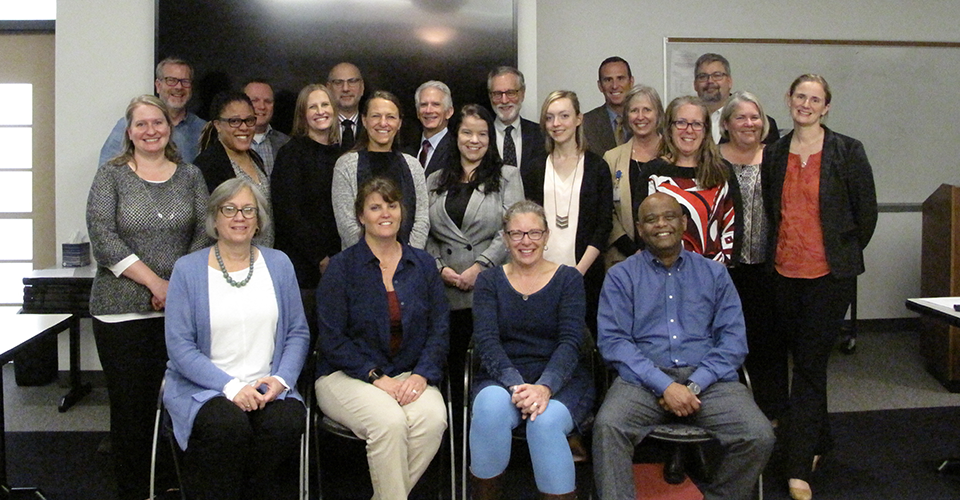At least a quarter of the people with serious mental illnesses in the public mental health system will have contact with the criminal justice system in their lifetime. The mental health system is becoming aware that treating the mental illness alone is not the total answer to reducing the risk of individuals with serious mental illness being involved with the justice system.
Looking for answers, faculty in the Department of Psychiatry at NEOMED and collaborators from the University of North Carolina Chapel Hill recently convened national experts to explore new approaches to cognitive behavioral interventions for people with serious mental illness.
Their goal? First, to help people with serious mental illness who have been involved with the criminal justice system avoid future justice involvement. Second, to work toward interventions that will serve these people in a more comprehensive way.
New ways to help
A small but growing number of interventions are being developed to reduce justice involvement by directly targeting criminogenic needs – those factors that place individuals at risk for continued involvement in the justice system. Primarily, these interventions target:
- prior and current antisocial behavior and activities
- antisocial personality patterns, including tendencies for impulsive behavior, aggression or disregard for others
- criminal thinking, meaning attitudes, beliefs and values that are favorable to crime and
- criminal associates (e.g., hanging out with the wrong crowd)
Many such interventions use a cognitive behavioral therapeutic approach. While many existing interventions show promise, they were not developed to be used with individuals with serious mental illness. And most of these interventions are designed for use in criminal justice settings, such as jail or prison.
“We believe there is a need for the development of an intervention that takes an integrated approach to addressing the mental health, substance use and criminogenic needs of people who receive services in community mental health settings,” says Mark R. Munetz, M.D., The Margaret Clark Morgan Chair in Psychiatry.
The recent event at NEOMED took that integrated approach. It brought together faculty from the Department of Psychiatry and NEOMED’s Criminal Justice Coordinating Center of Excellence (CJCCoE), along with Cognitive Behavioral Therapy for Psychosis practice experts from NEOMED’s Best Practices in Schizophrenia Treatment (BeST) Center, to meet with the 20 experts – many of them internationally known – to discuss cognitive behavioral interventions. Key community-based service providers, state-level policy makers and potential funders also participated.
“Together," says Dr. Munetz, “we reviewed existing interventions and examined the feasibility of developing a criminogenic intervention that is explicitly designed to be delivered in mental health centers by mental health professionals. Developing such an intervention would be an important step forward.”
The symposium was supported by Peg's Foundation of Hudson, Ohio.
– Submitted by Natalie Bonfine, Ph.D., assistant professor, Department of Psychiatry
